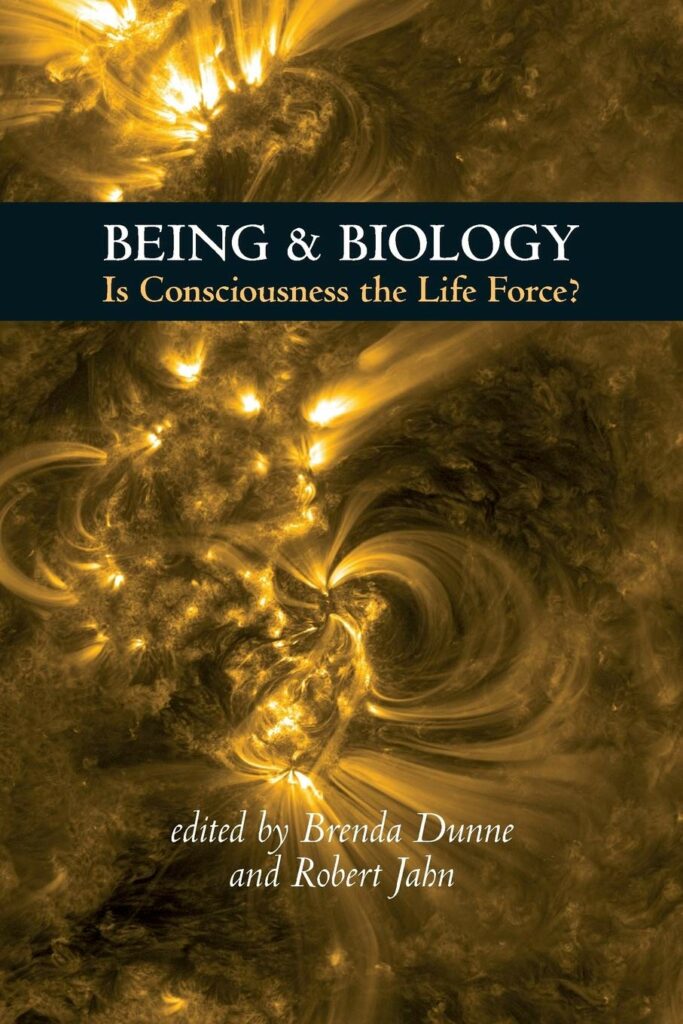
Scientism: When science becomes a religion by Steve Taylor
Last year, I was invited to take part in a debate at a popular science festival. (My debate was entitled “Is War Inevitable?” and was notable for the fact that we all agreed that no, war is not inevitable since it has not always existed.) I love how scientific inquiry uncovers the wonder of the universe, so I enjoyed my time at the festival, listening to the talks and discussions about physics, biology, and cosmology.
However, what disappointed me about the festival was that there was a sense of dogma pervading the air. Ironically, some of the attendees and participants of the festival reminded me of some religious people, in that they saw the world through the prism of a set of beliefs and displayed hostility to any alternative perspectives. There was a sense that “we” (the attendees of the festival) were the rational ones, who were in possession of the truth (or at least working towards it), in contrast to others who were irrational and deluded.
In particular, the speakers were disparaging to religion and “new age” spirituality. From time to time, they would mention telepathy, homeopathy, or other types of “pseudoscience” (or “woo,” as the speakers referred to it). The audience would respond by applauding their criticisms or murmuring with hostility.
The speakers also seemed to feel that they were engaged in a common enterprise, which would lead to a better future for the whole human race—a future in which human beings would be free from the ignorance of superstition, and were able to understand the workings of the universe.
One speaker—a well-known UK scientist—remarked that there were still some areas that science didn’t fully understand, such as consciousness. But he said, “We’re making significant progress, and I have no doubt that we’ll get there eventually.”
Scientism as a Belief System
It may seem strange to talk about science in these terms. Science is supposed to be neutral and objective and free from beliefs. The role of scientists is to investigate the structure and laws of natural phenomena and to conduct research and advance knowledge. Science is ideally an open-minded and open-ended process, where theories are continually tested and updated based on evidence.
It’s true that there are many scientists who work diligently without pondering over the philosophical implications of their work, and without consciously adopting any beliefs. It’s also true that some scientists are genuinely open-minded and willing to revise their beliefs when confronted with evidence. But as the science festival illustrated, for many people, science has become associated with a particular worldview, which is often maintained and defended in a similar way to a religion.
This is the worldview of materialism, which holds that matter is the primary thing in the universe, and that anything that appears to be non-physical—such as the mind, our thoughts, consciousness, or even life itself—is physical in origin, or can be explained in physical terms.
Materialism holds that human beings are just biological machines and that the only purpose of our lives is to survive and reproduce. It holds that anomalous phenomena, such as spiritual experiences, near-death experiences, or psi phenomena, are brain-generated illusions or can be explained in terms of fraud or coincidence. Materialists are particularly opposed to psi phenomena—like telepathy or precognition—which they see as anathema to science, a throwback to a pre-enlightenment world of magic.
An alternative term for this belief system is scientism since it is a paradigm that has been derived from some of the findings of modern science. As the psychologist Imants Baruss has described it, “Science is an open-ended exploration of reality based on logical thinking about empirical observations. Scientism is the adherence to a materialist version of reality that confines investigation to those sorts of things that are permitted by materialism.”
The Case of Reber and Alcock
One of the characteristics of dogmatic belief systems is that their adherents accept assumptions as proven facts. This is certainly true of scientism. For example, it is a fact that consciousness exists, and that it is associated with neurological activity. But the assumption that consciousness is produced by neurological activity is questionable. (See this article of mine for further discussion.)
It is a fact that evolution has taken place. But it is also a questionable assumption that evolution can be explained wholly in terms of random mutations and natural selection. As illustrated by the contemporary “Third Way in Evolution” movement, there is growing evidence against this assumption, as Neo-Darwinists believe. In fact, as I show in my book Spiritual Science, there is a dearth of evidence to support many of the assumptions of materialism, and a good deal of evidence against them.
Leading on from this, another characteristic of dogmatic belief systems is a refusal to consider evidence which contradicts their assumptions. There was a good illustration of this in a recent article published by the American Psychologist journal.
Last year (2018), the journal published an article by Professor Etzel Cardeña of Lund University, in which he carefully and systemically reviewed the evidence for psi phenomena—examining over 750 discrete studies—and concluded that there was a very good case for their existence.
As a commentary on the article from the British Psychological Society reported, “on this basis, it is arguable that, as much as any other field of psychology, there is at least something meriting investigation.”
However, in June of this year, the journal published an online rebuttal of Cardeña’s article by Arthur Reber and James Alcock. The authors take an unusual approach, based on theory rather than evidence. Rather than engaging carefully with the evidence presented by Cardeña, they put forward a theoretical argument for the non-existence of psi.
As they write, “Claims made by parapsychologists cannot be true… Hence, data that suggest that they can are necessarily flawed and result from weak methodology or improper data analyses or are Type I errors.”
Their attitude appears to be that since psi is impossible, no amount or type of evidence would be sufficient to support it. Therefore it is unnecessary to deal with any specific pieces of evidence.
It is difficult to see the scientific logic of this approach. Surely a truly scientific approach would entail engaging with the evidence and examining it on its own terms, accepting the possibility that—if the evidence is convincing—theories may have to be revised.
The authors’ approach is clearly more similar to the kind of dogmatism that is usually associated with fundamentalist religion. It is akin to a judge declaring that since we have already decided that a person is guilty, there is no need to look at any further evidence.
In more detail, Reber and Alcock argue that psi phenomena, in general, cannot exist, because there is no causal mechanism to account for them, and because they contravene a number of the tenets of physics.
However, the idea that psi contravenes the laws of science is very questionable. Specifically, Reber and Alcock argue that psi phenomena violate the laws of causality, of linear time, of thermodynamics, and the inverse-square law. However, many other scientists have put forward theories that would allow for the possibility of psi.
In fact, in modern physics—following on from Einstein’s theories and the theories and findings of quantum physics—the concept of causality is much more complex than Reber and Alcock presume.
Modern physics includes concepts such as retrocausation and the transactional theory of quantum physics, which are compatible with precognition. Telepathy is also compatible with the concept of entanglement. (Although note that I am saying compatible with, as I wouldn’t go so far as to say telepathy and precognition can be explained in these terms. The important point is that their existence is allowed for in terms of these concepts.)
Another issue is that Reber and Alcock seem to assume that the laws of science as they exist now are immutable, which is surely not the case. To assume that our present understanding of the universe is complete is hubris. (In fact, Reber and Alcock’s claim that psi phenomena cannot exist because they violate the inverse-square law is undermined by recent research showing that the law doesn’t apply to gravitational waves.)
There is a risk of appearing as foolish as the Victorian physicist Albert Michelson, who declared in 1894 that “most of the grand underlying principles have been firmly established… future truths of physical science are to be looked for in the sixth place of decimals.” (A similar quote is sometimes attributed to his contemporary, the physicist Lord Kelvin.) Of course, it was not long afterward that the revolutions of relativity and quantum mechanics completely revised our understanding of physics.
Beyond Belief
Belief systems form a distorting filter through which their adherents view the world. This is usually surreptitious, in the sense that adherents don’t usually even realize that they have adopted a belief system. They interpret the world through the prism of their beliefs without being consciously aware of any filtering or distorting.
This is particularly evident with psi phenomena. Materialists sometimes dismiss the possibility of psi by referring to the “Occam’s razor” principle that the simplest and least speculative explanation is usually the right one. But the question of what constitutes simple or speculative is determined by one’s perspective, through the lens of expectations and assumptions.
Materialism’s explanations only seem simple and economical if you have already decided that materialism is true. Many materialist explanations—such as for altruism or near-death experiences—are tortuous and convoluted, rather than simple and economical. (Again, see my book Spiritual Science for further details.)
With regard to psi, skeptics—including Reber and Alcock in their recent article—sometimes also refer to the argument that “extraordinary claims require extraordinary evidence.” But again, psi phenomena only seem extraordinary through the lens of materialism. From a cultural point of view, psi is not extraordinary. Research has shown that most people believe they have experienced psi phenomena at least once. Psi is also arguably less than extraordinary in relation to the bizarre and counter-intuitive goings-on of the quantum world.
In a similar way, materialists sometimes talk about the need to avoid “magical thinking.” But again, the question of what constitutes magical thinking is determined by one’s perspective. Outside the materialist belief system, it is surely magical to presume that consciousness can emerge from physical stuff and that human beings’ mental and psychological functioning is purely generated by neural activity. (Strikingly, the philosopher Colin McGinn has suggested that the idea that the brain could generate consciousness is analogous to water turning miraculously into wine.) As the “third-way” theorists point out, it is also arguably magical to believe that natural selection working on random mutations could approximate to a creative principle responsible for all of the complexity and variation of life on earth.
The Story of Galileo
There is an important parallel with the story of Galileo, who invited his contemporaries to look through his telescope. The Aristotelians and Church dignitaries refused to do so, as they had already decided that they knew the truth and didn’t want their worldview to be undermined. This is the case with dogmatic materialists who have decided what they believe and refuse to consider—or dismiss out of hand—any evidence that contradicts their beliefs.
True science means accepting that human knowledge is limited, and present theories are provisional and incomplete. True science means being willing to examine evidence on its own terms, outside the prism of the belief system of materialism. In other words, it means having the courage to look through the telescope.


